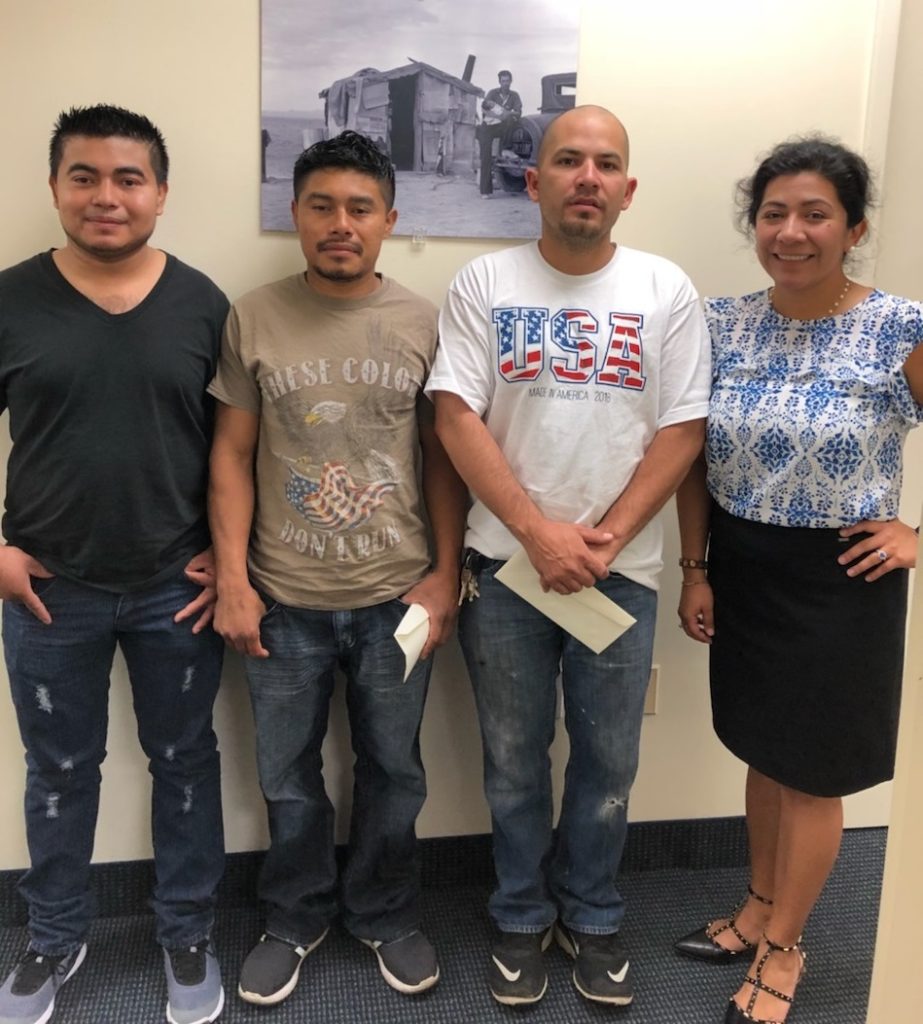
August 29, 2018: From approximately 2014 through mid-2016, Carlos Reyes, Salvador Aguilar Reyes, and Celso Reyes Aguilar worked well over 60 hours a week at a Maryland pizza shop. Each week, they received $400 in cash – not nearly minimum wage. Seeing how much they worked every week, they repeatedly asked their employer for a raise, only to be told that “they weren’t worth more than that.” Not knowing what the minimum wage is in Maryland, the two brothers and cousin kept on working. Upon separation from their employer, they knew things had not been right and sought legal help.
Represented by the Public Justice Center, they sued for their wages. They also filed a notice for a wage lien, which prevents the employer from selling or hiding their assets until they’ve paid the workers what they’re owed. As you might imagine, that got their attention. The case settled this spring, and in May, the workers received their money – nearly $50,000.
While this is a happy resolution for Carlos, Salvador and Celso, many restaurant workers are still cheated out of their wages. Restaurant workers are more likely that any other workers to be paid less than the minimum wage, and account for more than 25% of minimum wage violations across all industries. Federal law allows tipped workers to be paid as low as $2.13 an hour, but employers must make sure that tips fill in the difference between the base pay rate and the minimum wage. That doesn’t always happen, though. Employers engage in various tip violations, such as withholding a worker’s tips or deducting the cost of uniforms or customers’ unpaid bills from tips. Beyond failing to pay minimum wage, restaurants often don’t pay overtime. From servers to kitchen staff, workers may put in long hours, only to be denied compensation for the extra time.
One of the hardest things about fighting wage theft in the restaurant industry is that workers often can’t identify that they’re not being paid enough because they don’t know the wage laws. Workers may call us at the Public Justice Center because they felt something wasn’t “quite right” and they want to figure it out. Workers are often shocked after talking to an attorney – “wait a minute, I’ve been working for so long and you’re telling me that I’m owed all of this?!”
To spread awareness, we talk to community, labor, and organizing groups, offering know-your-rights presentations and brochures. We write articles for local media, like the Somos Baltimore Latino newspaper (see page 15). Our hope is that workers who know their rights will be more likely to seek legal assistance to hold their employers accountable for the wages they’ve earned. As Carlos, Salvador, and Celso know, standing up for one’s rights can force employers to finally pay what is earned.



